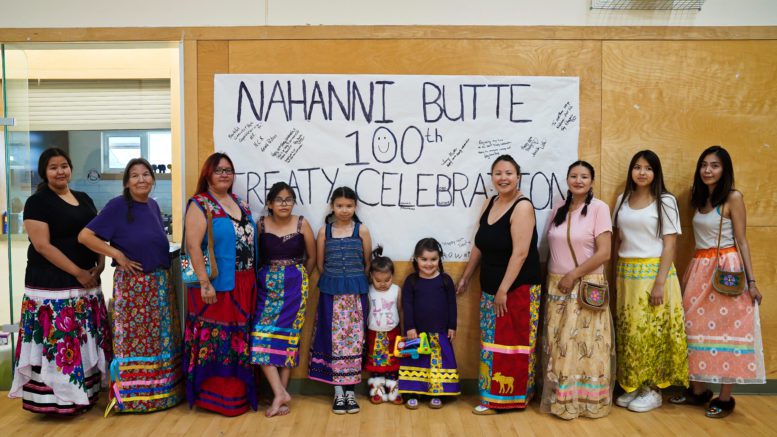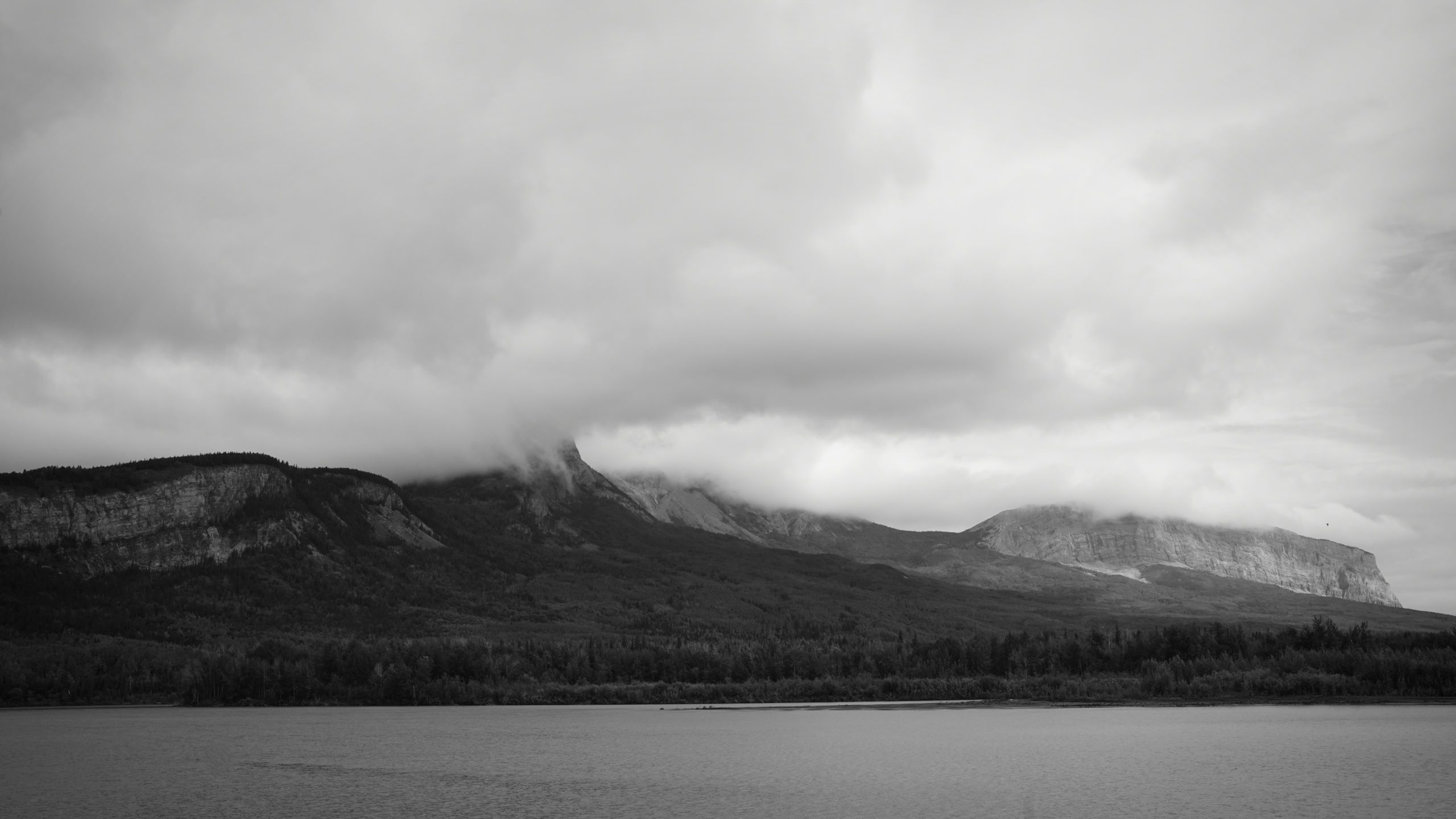Through bugs, a bit of bad weather, and last-minute cancellations, Nahanni Butte still managed to put on a week-long event marking the 100th anniversary of Treaty 11.
The event was both a celebration and commemoration, said Lory-Ann Bertrand, one of the organizers.
Signing the treaty a year later
When it comes to the treaty itself, it was about “remembering our Elders, their teachings and what they went through to make history happen for us today,” she says.
The majority of communities that signed Treaty 11 did so in the summer of 1921 when commissioner Henry Anthony Conroy travelled through Denendeh. Conroy did not make it to the Liard district, as settlers knew it at the time. He later died in April 1922 and Thomas William Harris, who was the Indian agent in Fort Simpson at the time, was appointed his successor to carry out the remaining signings.
On July 17, 1922, Chief Thomas E. Kinla, Joseph Fantasqur, and David Celibeta signed the treaty on behalf of Indigenous people in the area, including the Naha Dene. According to the treaty text, 147 Indigenous people were each paid $12 at the signing — the equivalent of about $200 today.
What is now known as Nahanni Butte was formed about 20 years after the treaty signing when families from surrounding camps gathered into a single community.
Today, Chief Steve Vital of the Nahɂą Dehé Dene Band notes that the treaty brought with it a series of broken promises.
“We still have to struggle with the government and what we want to do on our own land,” he says. “So they need to re-look at the treaty.”
Modern treaties like land claims and self-government agreements are very much in the works. While representatives of the Nahɂą Dehé Dene Band recently attended the Dehcho Assembly, Vital says the band is still looking to pursue its own land claim.
As for Bertrand, she said there should be more effort to educate youth on the significance of the treaty and how it still influences life today.
Getting back together
Both Vital and Bertrand noted that the treaty event was a way for the community to gather again after having been isolated for two years due to the COVID-19 pandemic.
“That’s what a lot of us missed, is coming together and meeting one another again, being around each other’s company or meeting new people,” said Bertrand.
Bertrand and Jennifer Vital, the recreation coordinator, planned the event for months. Booking guests, getting supplies and equipment is no easy feat for a community with fewer than 100 residents.
As a new mom, Bertrand said one of the biggest challenges was balancing planning and family life.
Nonetheless, Jennifer Vital, Bertrand and their entire team of volunteers put on a full week that featured a traditional fashion show, bingo, and lots of live music.
[slideshow_deploy id=’29045′]
‘We still practice our traditional ways’
What is more crucial to a gathering than good food?
That’s where Trina Marcellais comes in. While she wasn’t supposed to be in charge of food, her years working in commercial kitchens made her a great candidate to be volun-told to do so.
The highlight of her culinary offerings was a moose head generously donated by elder Morris Vital.
Raymond Vital, Marcellais’s uncle, told her she should cook it the traditional way of roasting it over hot coals for hours — something she’d never done before.
Saturday morning, Marcellais built up the fire and let the flames die down to embers in the community smoke shack. About noon, she put the foil-wrapped head on the grill. She expected the process to take six to seven hours with her rotating it every 40 minutes or so. About 6 p.m. the head still wasn’t done so they removed the large jaw bones and tongue — a favourite for many community members — and put it back on the fire. In total, the head cooked for 10 hours before being brought in Saturday evening as community members were dancing to live music.
“Oh my God! It’s perfect!” said Marcellais as she cut into the dull pink meat.
(Marcellais was generous enough to share a bite with this reporter.)
She then took a piece to her uncle to see if she passed the test.
“Having the approval of my uncle, saying that it’s good is a huge accomplishment,” she said. “And he said next time, he’s going to teach me to skin the whole thing.”
These kinds of traditional teachings were one of the motivations for the event, says Vital.
“I just wanted to show people we’re still out there and we still practice our traditional ways,” he said. “I would like to see (us) keep on practicing… keep gatherings like this happening so people can come together.”
Acho Dene Koe First Nation in Fort Liard will hold its treaty centennial event from Sept. 13-18.






